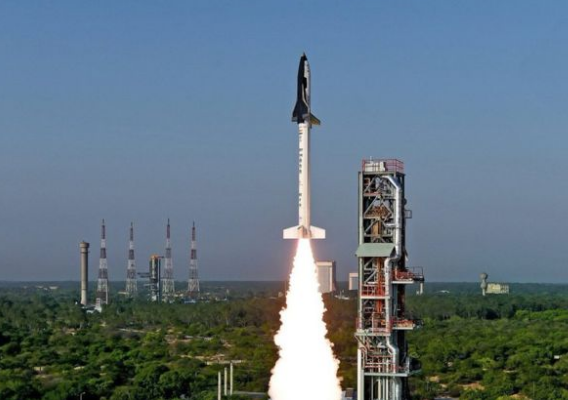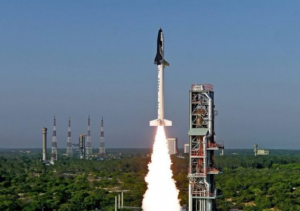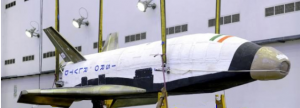
India launches reusable space shuttle


India launched its first reusable space shuttle on 23rd May 2016 from Sriharikota, Andhra Pradesh, an island off the south-east coast of India, which puts in direct completion with Elon Musk’s space X and Jeff Bezos Blue. The success of ISRO’s space shuttle project puts India among the very few countries worldwide with their own space shuttles.
The eleven-tonne Indian prototype costing only £ 10 million (one billion Indian Rupees) as compared to Space X’s Falcon Nine costing £ 41m. Since NASA stopped its Space programme in 2011, there has been strong international competition to design an alternative reusable space shuttle.
Prime Minister Narendra Modi tweeted: “Launch of India’s first indigenous space shuttle RLV-TD is the result of the industrious efforts of our scientists. Congrats to them.”
India’s president Pranab Mukherjee also sent his hearty congratulations to the Kerala-based team of 600 scientists who build the prototype over the last five years.
The Indian Space Research Organisation (ISRO) declared “mission accomplished” 20 minutes after 7:00am launch. The test launch saw a rocket booster propel the 21-foot long “reusable Launch vehicle technology demonstration” (RLV-TD) model around 40 miles into orbit before it reentered the Earth’s atmosphere at five times the speed of sound and landed safely in the Bay of Bengal.
This prototype is still a preliminary step as this version of the shuttle prototype will not be retrieved from the ocean. ISRO has plans for launching two further prototypes before the full 130 feet long version is launched. The US’s discontinued Space Shuttle Programme is due to be launched in 2030 and countries like Russia, Japan and EU also have their own reusable space vehicles at various stages of development.
The entire mission took just 770 seconds. India’s space agency will now look undercut its rivals as a low-cost option for governments and private firms seeking to put satellites and other associated equipment into orbit.
An Indian probe launched in 2013 reached the orbit of Mars for just £50m less than a cost of £69m sci-fi blockbuster Gravity .
